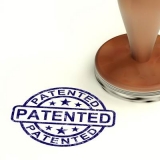
The Institute of Patent and Trade Mark Attorneys of Australia (IPTA) has warned that recommendations by the Productivity Commission on Intellectual Property arrangements would significantly weaken the Australian patent system, introduce uncertainty into obtaining and enforcing patent rights, and make the system more expensive for innovators,
The IPTA comments come in the wake of the Commission’s call for the Australian Government to make it clear that residents who get around geoblocking to access any kind of material are not in violation of the country's copyright laws.
In its report released on Wednesday, the Commission also recommended that it be made easier for consumers to access legitimate copyrighted content.
But in its response, the IPTA asserts that the PC makes a number of “anti-patent” recommendations including abolishing the innovation patent system, introducing an objects clause into the Patents Act, “virtually removing the availability of extensions of patent term for pharmaceutical patents, raising the threshold on inventive step and significantly raising patent renewal fees”.
{loadposition peter}The IPTA says it strongly disagrees with recommendations by the PC on abolishing the innovation patent system and "firmly believes that it should be retained and reforms considered that may address any deficiencies".
"Australia is not alone in having a second-tier patent system, and that second tier systems operate in around 60 countries including successful first world countries such as Germany, Japan and Spain.
"The second-tier patent systems appear to work well in those countries and are considered particularly suited for SMEs that, for example, make amendments to, and adaptations of, existing products. The report ignores that fact that a second tier patent system can work well."
According to the IPTA, the PC report adopts a unilateral view without evidence that “Australia’s intellectual property arrangements fall short in many ways and improvement is needed across the spectrum of IP rights”.
“It also appears to agree, in a biased manner, with certain “participants” that the current patent system hinders innovation and creativity, but there is a conspicuous lack of evidence to support this view. In addition, it arbitrarily takes a position that the current patent system results in a multitude of low-value patents without clear and credible guidance on what constitutes a “low-value patent,” the IPTA notes.
“Ironically, the recommendations of the report appear to be in conflict with the Coalition Government’s Innovation Agenda, which prompted Prime Minister Malcolm Turnbull to say, in support of innovation, “we’ve got to be prepared to have a go and be more prepared to embrace risk and experimentation,” IPTA spokesman Dr Grant Shoebridge points out.
“Anathema to the Prime Minister's sentiments is the report’s statement that the system should provide incentives for IP to be created at the lowest cost to society, a statement which underpins the recommendations that weaken existing IP rights for innovators.”
According to the IPTA, the PC report adopts a unilateral view without evidence that “Australia’s intellectual property arrangements fall short in many ways and improvement is needed across the spectrum of IP rights”.
“It also appears to agree, in a biased manner, with certain ‘participants’ that the current patent system hinders innovation and creativity, but there is a conspicuous lack of evidence to support this view. In addition, it arbitrarily takes a position that the current patent system results in a multitude of low-value patents without clear and credible guidance on what constitutes a “low-value patent,” Dr Shoebridge says.
“More curious still, the report has a lofty and unrealistic view that the patent system should only contribute to socially-valuable innovation that otherwise would not occur. There is however, no direction on what socially-valuable innovation is and how to determine whether such innovation will only occur as a result of the patent system. It simplistically considers innovation from an academic perspective and fails to understand, or even consider, the necessary financial investment and risk that is required to commercialise innovation for the benefit of the public; the very reasons why the patent system needs to offer both rewards and a degree of certainty to innovators and investors.“
Dr Shoebridge says IPTA believes that Australian innovation policy, which encompasses the patent system, “should provide a substantial incentive and compensate innovators for the risk and financial investment necessary to bring innovation to the market for the benefit of the general public”.
“Australia’s current innovation policy should not be weakened and made uncertain based on the academic views of economists who have neither proximity to innovation nor expertise in relation to commercialisation of innovation,” Dr Shoebridge concluded.
The IPTA criticises the PC report recommendations that the Australian Government, with input from IP Australia, should explore the costs and benefits of using higher and more pronounced renewal fees later in the life of a standard patent, and make greater use of claim fees to limit the breadth of patent protection and to reduce strategic use of patents.
In response, the IPTA says it disagrees with the negative premise of this recommendation.
"Patent system costs have not been shown, by evidence, to be undue either in Australia or any other comparable country. IP Australia already takes care in setting fees such that a higher economic hurdle must be passed later in a patent’s life. Most patents expire by about the eleventh year.
"With the exception of the PCT system, international co-operation on fee setting is highly unlikely to be seen as necessary barring significant anomalies in costs so the latter part of this recommendation is unrealistic," the IPTA notes.